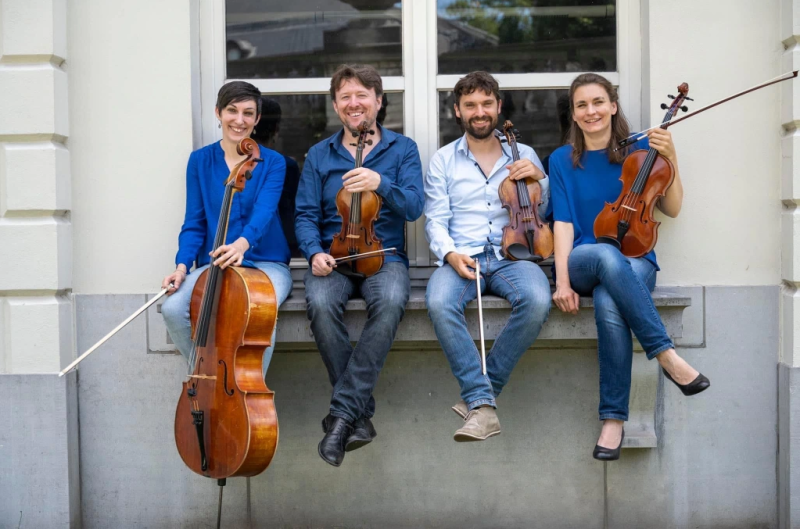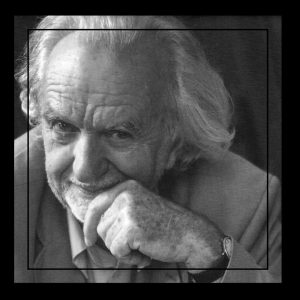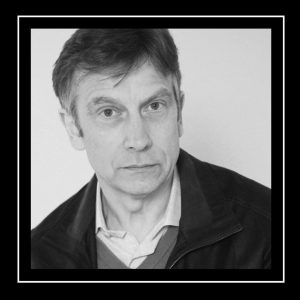Debate & concert: Deux visages du quatuor à cordes | Zbigniew Bargielski and Jean-Pierre Deleuze performed by Quatuor Amôn
The Poland-Belgium musical encounter will unveil the universes of two composers whose poetic aspirations seem to bring them together despite their geographical and temporal differences. Zbigniew Bargielski and Jean-Pierre Deleuze will successively highlight the main characteristics of their musical language through a string quartet they have composed, which will be fully performed by Quatuor Amôn, the ensemble in residence at the Royal Academy of Belgium.
Each composer will have the opportunity to illustrate their analysis by performing key passages or motifs from the musical composition. Jean-Pierre Deleuze, a composer and member of the Royal Academy of Belgium, will first introduce his work: the string quartet “Le Pavillon des Songes,” followed by its complete execution by Quatuor Amôn.
Next, Zbigniew Bargielski will introduce himself and place his work in the historical and cultural context of Poland. Additionally, the musical analysis of his String Quartet No. 1 “Alpine” will precede its performance. Towards the end of the session, there will be an interaction with the audience in the form of spontaneous questions and answers.
Programme:
- J. P. Deleuze, First String Quartet, “Le Pavillon des Songes” (2016)
- Z. Bargielski, String Quartet No. 1, “Alpine” (1976)
Bargielski’s work, with its distinctive sonic universe, stands as an independent force in contemporary Polish music, transcending prevalent trends. Over the years, he has developed his unique system for arranging a constellation of sounds and shaping the architecture of his compositions. His repertoire spans orchestral pieces, concertos (particularly for percussion), chamber music, and solo instrument compositions. Notably, he has also ventured into operatic realms with works such as “Danton” (1968/69), “The Little Prince” inspired by Saint-Exupéry (1970), and “Alice in Wonderland” (1971/72), the latter two crafted for a youthful audience. Alongside his role as a composer, Bargielski has built a career as a professor at the Feliks Nowowiejski Academy of Music in Bydgoszcz.
Initially influenced by the profound works of Alexander Scriabin, Deleuze later delved into microtonality. Shaped by spectral aesthetics and a fascination with the East, his compositions evolve to express a contemplative imagination, as seen in “Espaces Oniriques I” (2001) for piano. His works increasingly incorporate explicit and numerous references to Eastern musical traditions, as evident in pieces like “Quatre Haïku, évocations poétiques pour orgue” (2004), “Âlap” (2005) for bansuri, arpeggione, and guitar, and “Vues sur le jardin de lumière” (2009) for piano and string quartet, among others.
In January 2007, Deleuze was honored with membership in the Royal Academy of Belgium.

Quatuor Amôn – Aymeric de Villoutreys, violin / Julien Poli, violin / Éva Pusker, viola / Anne-Gabrielle Lia-Aragnouet, cello
Established in 2008, Quatuor Amôn is currently the ensemble in residence at the Royal Academy of Belgium.
Debate & concert
Deux visages du quatuor à cordes
Fabruary 1, 2024
17:00
Palais des Académies – Galerie de Marbre
Rue Ducale 1, 1000 Brussels




 Jean-Pierre Deleuze
Jean-Pierre Deleuze

